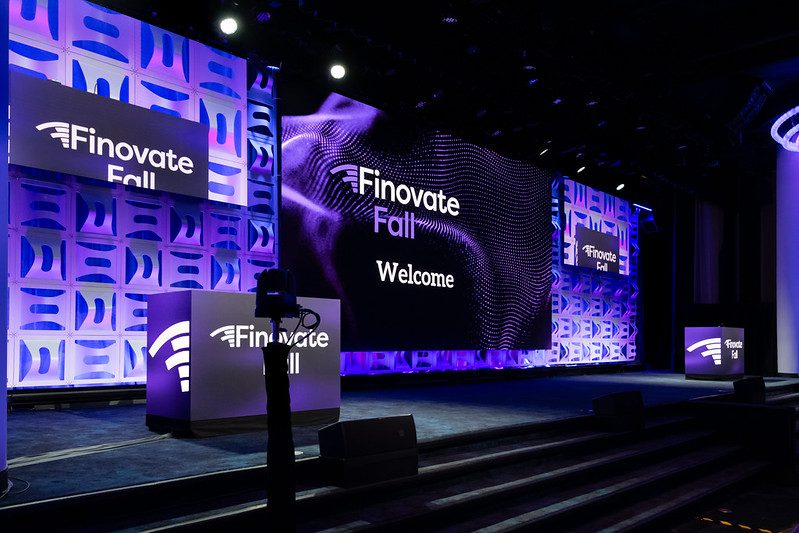When we talk about the battle for deposits, retail banking gets most of the airtime. But the real strategic prize for banks is commercial operating deposits. These are the low-cost, high-value balances that anchor a corporate relationship, support loan growth, and improve liquidity ratios. Commercial banking, distinct from retail, investment, and private banking, focuses on serving businesses with more complex financial needs.
The challenge is that corporate treasurers now expect real-time visibility, multi-entity cash positioning, and instant fund movement. They are ready and willing to move their deposits to whichever financial institution can deliver. This shift is driven by digital natives, who increasingly expect to transact seamlessly through smart devices, influencing corporate expectations as well.
At the 2025 Finovate Conference, Qolo CEO, Patricia Montesi joined other industry leaders on a panel to discuss this very topic. The consensus was clear: to win the deposit race, banks need to become operationally indispensable. This means embedding banking services directly into a client’s daily cash flow and operational workflows.
The following summarizes key insights shared by Patricia and co-panelists.

What Challenger Banks Get Right
Challenger banks succeed by integrating their services into clients’ daily operations, becoming essential to cash flow rather than just holding money. While large banks have stronger balance sheets, challengers offer superior operational integration through API-first treasury tools, real-time multi-entity visibility, and programmable account hierarchies. These features make switching banks seem operationally complex for corporate clients.
The key to success is not just marketing or competitive rates, but becoming operationally indispensable to how corporate clients manage their working capital. Banks that grasp this will attract and retain valuable commercial deposits.
Growing Deposits: It’s Time to Act Like a Fintech
To stay competitive, traditional banks must adopt a fintech mindset. For commercial deposits, this means implementing API-enabled onboarding, integrating real-time payment rails, and offering self-service liquidity controls. Challenger banks thrive because they’ve built their platforms around these principles from the start.
The good news is that banks don’t need to overhaul their entire core systems. By layering modern infrastructure onto legacy cores, they can deliver advanced treasury functions without the complexity of a full system replacement.
This is especially important as traditional and emerging payment rails rapidly converge. Real-time payments, instant settlements, and tokenized deposits are becoming increasingly common. Leading banks are already preparing for multi-rail liquidity management, ensuring funds – whether in RTP, FedNow, or card networks – stay within their ecosystems.
Why Fintech Partnerships Are a Strategic Move
Fintech partnerships can be a powerful distribution strategy for deposit acquisition, particularly in B2B verticals. For a partnership to succeed, banks must thoroughly vet potential fintech partners for BSA/AML compliance, funds flow transparency, and operational risk. These collaborations help banks integrate user-friendly and innovative financial solutions, making them more attractive to corporate clients.
These collaborations allow banks to target niche markets – like marketplaces and payment facilitators – that might otherwise turn to challenger banks. For example, Qolo’s partnership with KeyBank on the KeyVAM platform demonstrates this potential. In under a year, the platform processed over $12 billion in transactions, proving to be an effective way for KeyBank to attract new and retain existing commercial deposits. Traditional banks are also investing in digital transformation to enhance their digital services and remain competitive.
Overcoming Key Threats in the Banking Sector
Community Banks: The Treasury Functionality Gap
The biggest threat to community banks is the inability to compete on advanced treasury functionality. While they often have strong relationship advantages, these alone are no longer enough. When corporate clients demand instant multi-bank transfers and real-time account hierarchies, community banks risk losing business if they can’t deliver. The solution lies in adopting modern infrastructure that provides Tier 1 capabilities, leveling the playing field and allowing them to maintain their personal touch. Banks must also ensure that fintech partners uphold high security and compliance standards to maintain customer trust.
Regional and Large Banks: The Agility Dilemma
Large banks risk losing their edge to more agile challenger banks and fintechs that can launch new products in weeks, not years. Regional banks face a different challenge, often lacking both the personal touch of smaller banks and the massive resources of larger institutions for technology investments.
For both, API-first platforms are the answer. These platforms enable the launch of modern treasury products without the costly and time-consuming process of core system replacement. Speed to market has become a key differentiator, and the ability to deliver tailored solutions quickly will define which banks remain competitive.
Unify Your Systems to Win Deposits
Banks need to shift their thinking. Deposits are not just static money sitting in an account; they are dynamic, operational cash flows. The future of banking lies in building infrastructure that makes your institution indispensable to how clients manage their daily operations.
Real-time visibility, programmable logic, and multi-rail orchestration are what make deposits sticky. The banks that win the deposit war will be the ones that become operationally embedded in their clients’ success. By focusing on providing tools that solve real operational pain points, banks can create lasting relationships and secure their position as the preferred partner for commercial clients.
At Qolo, we build unified payment solutions that empower banks to do just that. Our platform was designed to simplify complex financial infrastructure, enabling you to offer the advanced treasury services your corporate clients demand.
By prioritizing innovation and operational excellence, financial institutions have the opportunity to redefine their value to corporate clients. The insights shared during this panel underscored the critical importance of seamless integration, real-time visibility, and tailored solutions in meeting the evolving demands of today’s businesses. At Qolo, we are committed to partnering with banks to deliver scalable, compliant, and customer-centric payment ecosystems. Together, we can drive faster transactions, reduce complexities, and build stronger, long-lasting client relationships. The future of corporate banking belongs to those who elevate the payment experience. Qolo can can help you lead.



